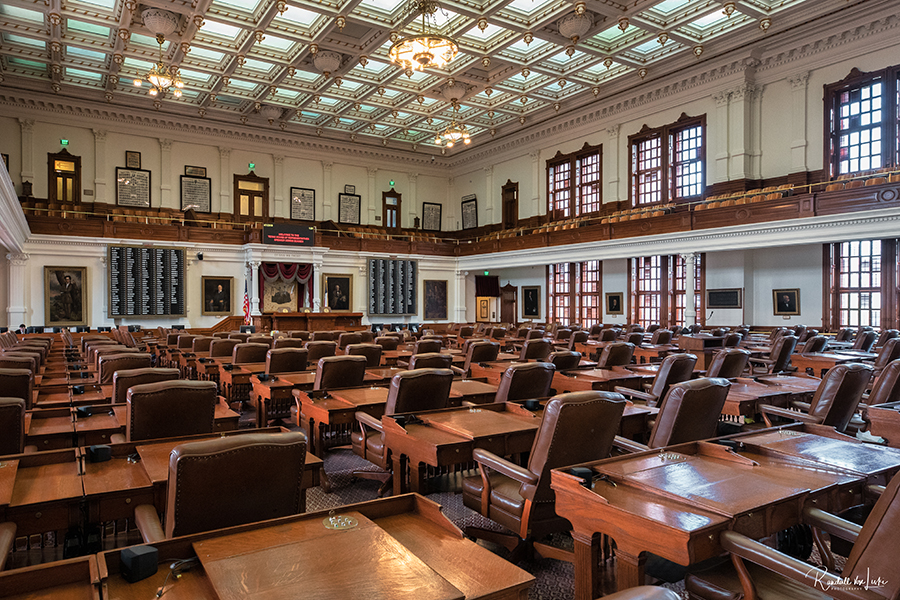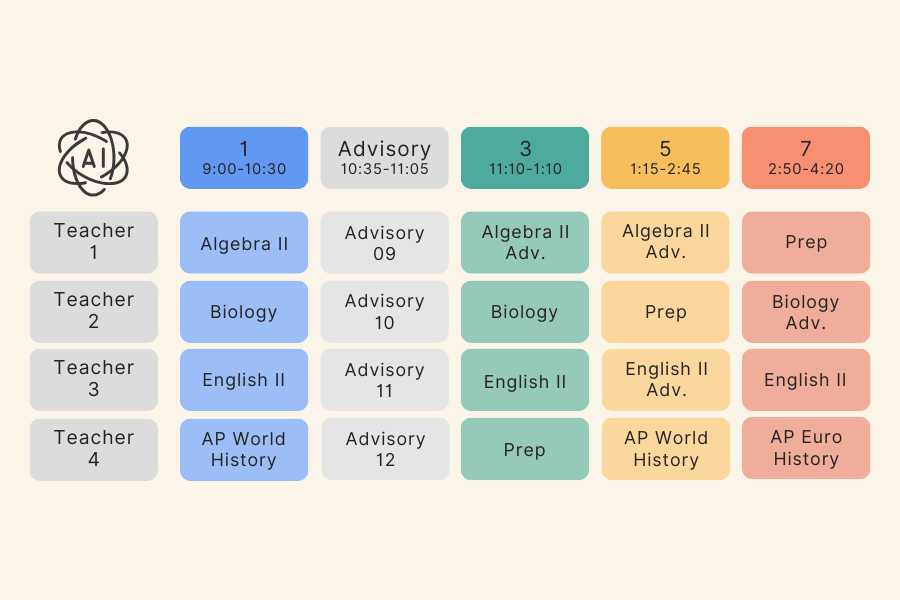Following a senate vote on March 18 and 19, the Texas Senate passed two new bills that would reintroduce religion into public schools. Both bills are in the process of being sent to the Texas House of Representatives for further consideration.
Senate Bill 10 will require all public schools to display a large poster or framed copy of the Ten Commandments in every classroom. Senate Bill 11 will permit public schools to incorporate a period of religious study into the school day as long it does not interfere with educational hours or involve any type of involuntary participation.
With both bills currently making their way to the Texas House, students and staff have begun to react to the possibility of these bills being passed.
Law magnet teacher Christopher Bufkin said that there is a common misconception that the First Amendment only gives Americans five protections when there are actually six, as the constitution guarantees all citizens two religious rights.
“One is that the government’s not going to establish a religion and the second one is that we have the free exercise of religion,” Bufkin said.
Bills similar to SB 10 have been attempted in other states. In the 1980 case of Stone v. Graham case, the U.S. Supreme Court ruled that a Kentucky law requiring public schools to display the Ten Commandments in classrooms was a violation of the Establishment Clause of the First Amendment. More recently, Louisiana entered an ongoing lawsuit regarding the same issue of whether having the poster was a breach of the religious freedoms of staff and students who do not subscribe to a Judeo-Christian faith.
Law magnet senior Olivia Brazier said that America was founded on the ideas of separation of church and state as well as the freedom from religion, and it has no place in public schools
“School’s a place where we send our most susceptible and vulnerable, should represent that, not contradict it,” she said.
Food science teacher Eric Charles said he worries about the negative effect that having a religious doctrine in classes could have on the school’s diverse population.
“I grew up in the Abrahamic religions that honor the Ten Commandments,” Charles said. “But I would not want a set of codes forced upon my own children, so I don’t feel like it’s fair to go ahead and force those codes onto somebody else’s children.”
One of the bill’s supporters, Sen. Donna Campbell, counters that the document is an important part of American history and should be regarded in the classroom as such.
“The Ten Commandments should be posted in every schoolroom, unapologetically taught as a foundation of America,” Campbell said in an interview with Houston Public Media. “It is who we are. It is our history, and our students need to proudly learn them.”
Bufkin said the type of secular reasoning would be more believable had the bill included other founding documents like the Constitution, Bill of Rights, or Declaration of Independence.
“But it doesn’t say those other documents,” Bufkin said. “So I don’t see it surviving.”
While the SB 10 would be a mandate to all public schools, SB 11 only allows districts the choice of implementing a period of religious recreation but would require parental consent for individual students to participate. Some students and staff believe it could be a good way for students to exercise religious freedom in school, while others are worried about potential tensions.
Senior Natalie Gilbreath said she is partial to the idea as it is a way for students to practice and understand their belief system while still in a safe environment. It also allows student to share a common bond through their religion.
Charles said that dividing students by religion could worsen discrimination. He said SB 11 being implemented in smaller districts that lack a diverse religious demographic may open the small group of minority students to ridicule and isolation from their peers.
The possible implementation of these religion-based bills opens the door for discourse regarding the autonomy and freedom of choice for staff and students in the school district.
“I support choosing for yourself – that you decide for you,” Bufkin said. “This is your chance to exercise your rights on your own and that someone’s not forcing you to if it does make it through.”













